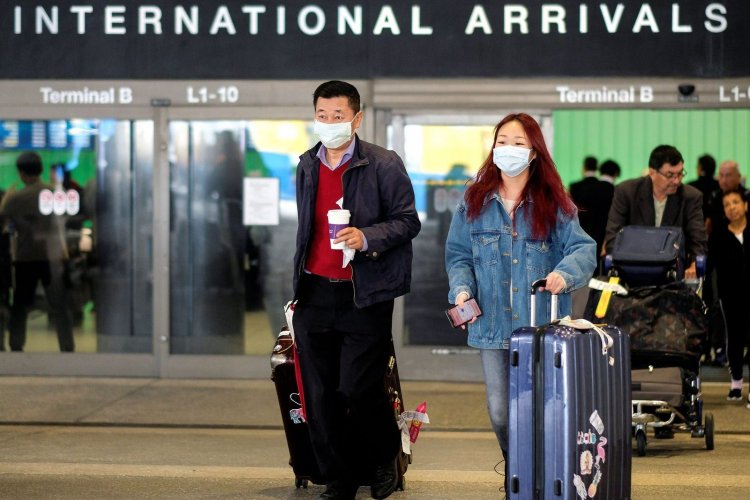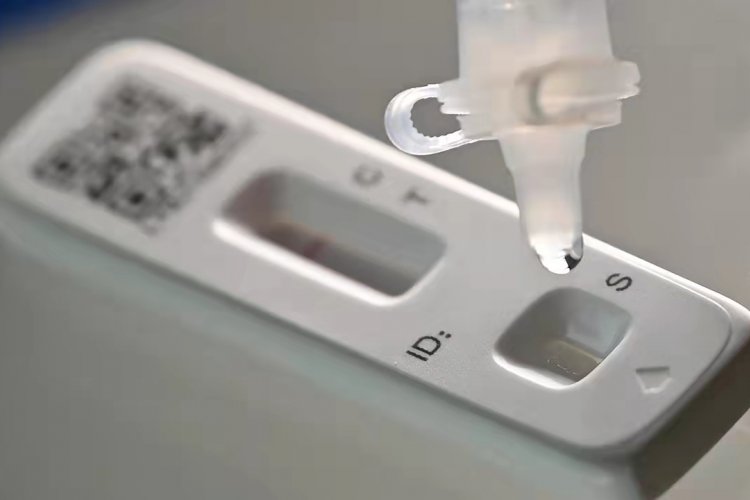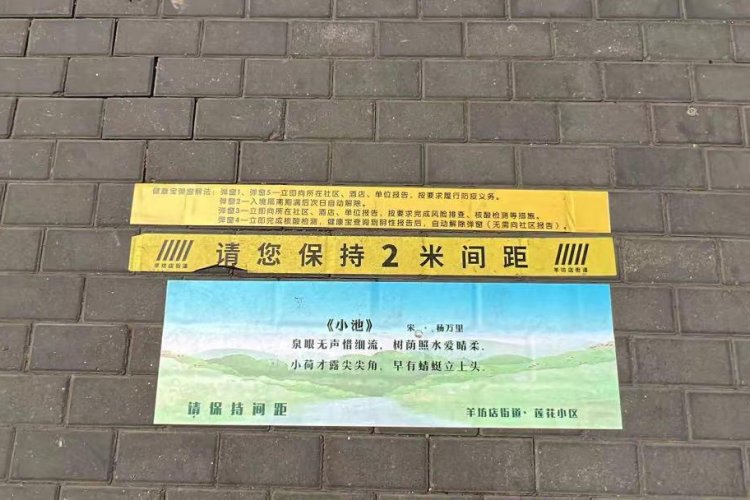Beijing Bunker: Cultural Keys' Founder on the Benefits of Perspective and Meal Prep
As Beijing enters its second week in self-quarantine, the stories of how people have been dealing with the coronavirus outbreak – by staying, leaving, or watching on from afar – are many and varied. In Beijing Bunker, we quiz Beijingers on what approach they've been taking to stay safe and sane in this time of war.
Long-time Beijinger Andrew James is no stranger to the challenges that this city can suddenly throw at you. During the 15 years that he has lived here, he has gradually adapted and fully embraced the Chinese way of life, using what he has learned to settle into a kind of unofficial cultural ambassador role via his organization Cultural Keys, helping tourists and expats better understand Chinese culture through workshops, martial arts, and expeditions. Below we catch up with Andrew James to see what, if anything, this latest kink in Beijing life has changed things for him and his business.
Can you first tell us a little bit about yourself and your background?
My name’s Andrew James, I’m from ‘smalltown UK,’ and have lived in China for 20 years, originally living in Shijiazhuang for five years before moving to Beijing in 2004. I originally came to China to carry on learning Chinese martial arts, having studied for several years in the UK. The plan was to stay for a year, but like so many people, I just fell in love with the place, and haven’t found a good enough reason yet to leave.
I’ve pretty much done a little of everything here; started as a kindergarten teacher back in the day, before moving on to be a business consultant, then investment risk analyst, reporter, actor, and voice artist. Yep, pretty much everything! Now, I run my own company, Cultural Keys Chinese Culture Centre, where we offer classes and programs in traditional Chinese culture to expats and tourists.
Would you consider yourself safe, sane, safe and sane, or other? Why?
Personally, I think for both myself and my wife, we feel very safe and sane. Why wouldn’t we? We are not overly social people normally, and we have plenty to keep us busy, so it’s not like we are sitting around, looking at the latest data every 3.5 minutes!
I know that people, both in Beijing and abroad, are worried and in some cases actually fearful, of the current situation and what it’s going to become. And yes, people are dying and suffering as a result. There are definitely tragedies occurring every day. But I do think people also need to keep perspective. As much heat as I get on social media for saying so, I think the Beijing government is doing a lot to keep people safe and control the virus as much as it can.
Is it enough? Who knows, it’s still too early to say. But since this situation really got going at the start of February, we’ve never been afraid. Today (Feb 14) the number of officially recorded cases in Beijing is 366. That’s 366, out of a current population of around 13 million (based on estimates of how many people haven’t come back yet). People need to think about that number. 366. Out of 13 million. The number of officially recorded cases is still going up, and there is a lot we don’t know about the virus. But hysterical headlines aside, I’ve not seen any facts that suggest this is something we should be overly afraid of.
Has the virus disrupted your travel plans or those of your loved ones?
Yep, my best friend and business partner was meant to be coming up from Hong Kong for his annual visit in the first week of February. He wasn’t worried about the virus itself but knew that travel arrangements might be disrupted, so he decided against it. That was really lucky as HK enacted its quarantine for everyone from the mainland while he was meant to be here!
How have you been spending your time since the outbreak? How has your life changed on account of the situation?
As a small business owner, I’ve always got a to-do list of at least 50 things, most of which I know I am very unlikely to actually get around to doing any time soon. But with all the extra time we have now, I am finally making my way through that list.
Outside of work, we are finding more time to relax, which we rarely have, because we are not tied to deadlines and upcoming events. That means we’ve taken the time to go to a few parks (it’s safe to be outdoors if you’re in open areas and follow standard precautions), which we never usually have time to do and is of course good for your health.
With the gyms closed, we’ve also had to start training at home. I dug out my old TRX kit and we’ve been using that every day for a full-body workout. It’s so good, that I think even once gyms reopen we won’t go back, which is another thing that will save us time and money!

Has the situation affected your work or business? If so, how?
As a business that offers workshops and programs to tourists, schools, and companies, the situation has obviously wiped out any plans we had for February and March, and perhaps longer-term as well. We’ve already had to cancel the three events we had planned in February and the one at the start of March, plus new clients we were talking to for programs to start in March have understandably told us they can’t go ahead until things have normalized. So it’s obviously a huge problem for us. Our events are always hands-on experiences, so we can’t even offer online classes like some places do.
If the situation does continue long-term, we are really going to have to carefully consider how to move forward. Obviously we aren’t the only ones in such a situation, and some will be facing bigger problems than us. But it is one of those things, unexpected challenges that you simply have to adapt to or disappear.
Have there been any unexpected upsides?
As people are dying, regardless of statistics, I’m not sure ‘upside’ is a word I would personally use. But certainly, tragedies aside, it hasn’t been all doom and gloom, at least not for us personally. For example, having more time is always a good thing. We’ve had so many business plans on the back burner for several years now, so now that we are facing these challenges, it has given us the opportunity to go back to the drawing board to see what else Cultural Keys can be doing to keep afloat until this hopefully passes.
Another upside is that it has reminded us to live more frugally. With shops closed, and Taobao orders more complicated than before, we have done almost no shopping for the past two weeks. It’s so easy just to spend and buy things you don’t 100 percent need when you don’t need to think about the purchases, but now we carefully consider every purchase, which has highlighted where we were a little wasteful before, whereas now we are only buying the things we really need. Of course, I’m also getting more time to play Playstation, which I never usually have, and my wife has time to watch her favorite shows and plan her garden.
At the end of the day, I guess it’s just a case of finding ways to make the best of a bad situation.
Which resources (online or real-life) have proved the most useful to you during this time?
When this first really kicked off, we were paying attention to all the headlines, both from China and internationally, several times a day. But as the days have gone by, it just seemed more and more that many reports were little more than opinions being touted as facts. This expert said this, that expert said that, and of course, both were contradictory! So what’s the point of reading any of them?
So now, my wife reads the TBJ blog post each morning, and I look at the government’s official figures website. The anonymous ‘experts’ on social media say the official numbers are ‘unreliable,’ but as neither the WHO nor the British government is offering us anything else, it’s all we have to go with. Take everything with a few bags of salt, obviously. But remember just because it could be unreliable, doesn’t mean it is.
What's one thing that you've done that has saved you a lot of hassle/time/insanity?
Meal prep! A few years ago, we lived almost exclusively on meal prep, with my wife taking a half-day each week to prepare food for the next five days, which saved us both time and money. Of course, like most things, when work and life get in the way, it’s easy to make excuses and stop doing things, even those that are good for you.

But now, with restaurants closed and even less reason to go out, popping to the supermarket once a week, buying all the vegetables we need and then prepping food for the next five or six days is great! It costs a fraction of eating out or eating ready-made food, it’s super healthy, and gives us one less thing to think about every day, and is definitely something we will carry on doing after this passes. The question of ‘What will we eat today?’ is something we won’t miss concerning ourselves with!
What do you most look forward to doing once all of this has blown over?
Obviously, more than anything, we want to get back to doing business, getting back to our meetings and moving our company forward again. It is nice to be able to relax slightly and take the time to develop your company, but I miss actually meeting with people and showing them what we can offer. On the other hand, my wife keeps talking about what she is looking forward to buying once the plant market in Tongzhou reopens, full of greenery and lush foliage. So I look forward to us being able to do that together, too.
READ: Cheers' Claudia Masüger on Making the Best of a Crappy Situation
Images courtesy of Andrew James







